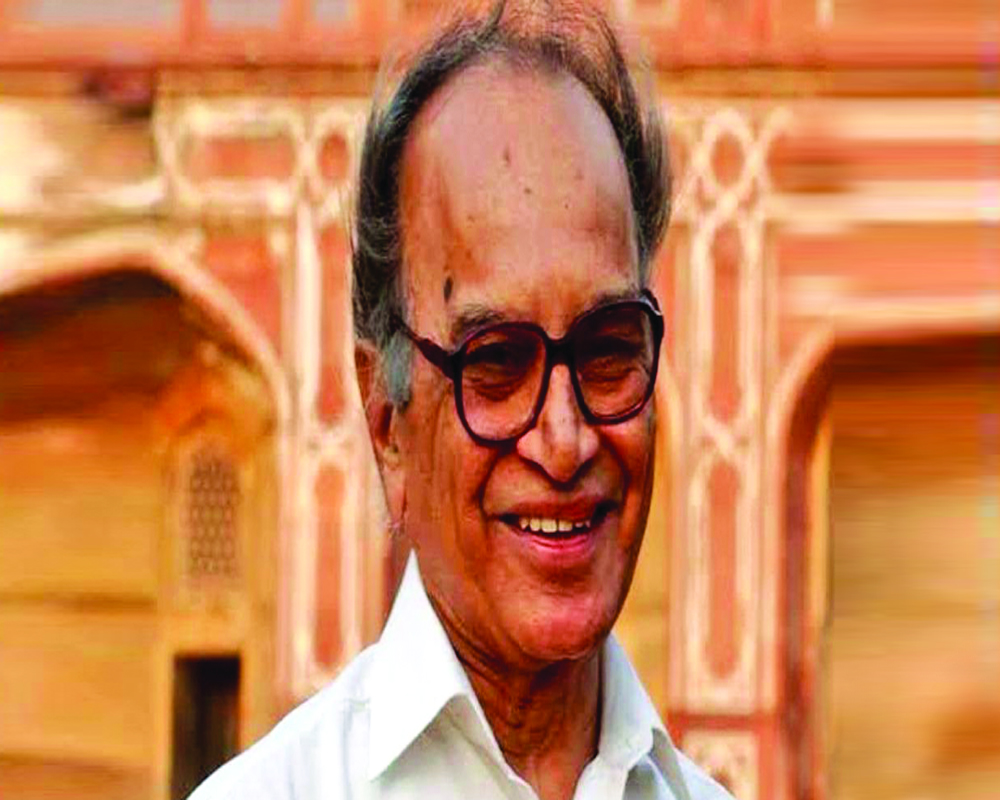Not once did he allow his political considerations to outweigh his administrative propriety
In 1973, I came to Delhi, almost an ignorant stranger, for the first time, to work and study with my old friends, some of them from Jawaharlal Nehru University (JNU) campus at Sapru House Barakhamba Road and some others coming from Delhi University (DU) campus. I lived in the hostel of Indian Institute of Public Administration (IIPA) which became the favourite joint of my friends for its inexpensive food and we divided our time between the Sapru House canteen and library. Along with my friends who were getting indoctrinated in the JNU culture and budding scholarships alongside Civil Services preparations, I used to spend considerable time in the famous Sapru House library. The new JNU campus was yet to come up. While my friends from the School of International Studies were deep into their research and highly romanticised lives, I was developing my own interest in urban planning and governance. I met some scholars and the librarian to find who was the most knowledgeable to introduce me to the city of Delhi. Without exception everyone pointed at a bespectacled person, named Jagmohan, sitting alone in one corner of the library, deeply engrossed in some books.
When I told Jagmohan that I wanted to meet him to learn about the past and contemporary Delhi from a planning and public administration angle, he asked me not to speak in the library and led me outside. He took me to the Sapru House canteen where, as if on cue, the waiter brought two cups of tea. Jagmohan asked me a few searching questions about my academic background and experience. He liked my somewhat weird profile and my keenness to learn. I was facing Jagmohan as a student and he was the teacher and task-master as we spent a highly focussed 45 minutes in the cafeteria. That was my first learning about all aspects of Delhi, including the brief story of its seven historical cities, which got built and destroyed — yet remained present as monuments across the 1485 square kilometers (sq km) of the present National Capital Territory (NCT) of Delhi.
I remained associated with Jagmohan from that time until a couple of years ago when I used to meet him at the India International Centre (IIC) which became his second home and the main study point, whenever he had free time from his extremely tumultuous career. When I met Jagmohan in the early 1970s he was Commissioner in the Delhi Development Authority (DDA) and finally when I started meeting him at the IIC, nearly 45 years later, he was deep into his reading and writing as a highly dignified retired bureaucrat-politician scholar. Among his numerous academic and policy documents the most important shall ever remain the master plan of the city. Jagmohan’s extraordinary career spanning over 60 years, saw extremely volatile ups and downs as the creator and Vice-Chairman of the DDA with the Chairman being the Lieutenant-Governor (L-G) of Delhi himself. Becoming Delhi’s best known L-G twice; twice the Governor of Jammu and Kashmir during its most violent and difficult times; joining active politics, between the Congress and the BJP, but always remaining more of an administrator than the Union Minister of Urban Affairs. Since I joined Indian Police Service (IPS) in 1974 and got allocated the Union Territory (UT) — now Arunachal Pradesh-Goa-Mizoram and UT (AGMUT) cadre — working in Delhi as Deputy Commissioner, Additional Commissioner and Joint Police Commissioner, I had numerous opportunities to face controversial and politically-sensitive situations, involving me on the job reaching out to Jagmohan — as a politician or as an administrator. Without writing in detail about those highly explosive situations about Jagmohan and myself, I must say, not once did he allow his political considerations to outweigh his administrative propriety.
(The writer is a retired IPS officer and social activist. The views expressed are personal.)


























